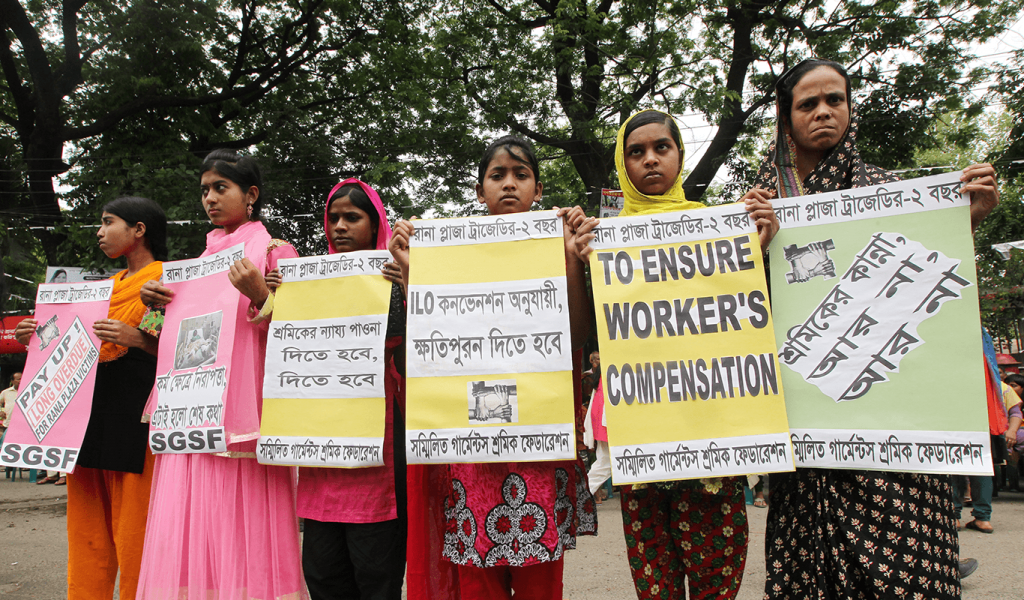We’ve come a long way baby… or have we?
by Irit Tamir
While gender equality is enshrined in the 1948 UN Declaration of Human Rights, in the Convention on the Elimination of All Forms of Discrimination against Women and in legislation in most countries, women’s conditions of participation in markets and their rewards from that participation, still remain woefully unequal to men’s.
Many women work in temporary or informal positions and are therefore “invisible” to laws and regulations. Women also currently bear a disproportionate share of household and domestic labor performing 80 percent of unpaid care work. Business can’t solve all these problems alone, but corporate practice can either, aggravate and perpetuate gender inequality, or it can help lead the way to for equality among men and women.
Take into account these figures:
- In sub-Saharan Africa nearly 80% of women workers are in vulnerable employment.
- In Southern Asia, 36 % of women participate in the labor market. Less than 50% of these are on a payroll and concentrated in informal, sub-contracted, and home-working economies.
- In Kenya, women own half of all small and medium enterprises, but experience less growth than male-owned businesses due to a lack of support and resources.
The UN Women’s Empowerment Principles is a result of a collaboration between UN Women, the United Nations Entity for Gender Equality and the Empowerment of Women which was created by the UN General Assessment in 2010, and the UN Global Compact, a policy initiative for businesses that are committed to aligning their operations and strategies with ten universally accepted principles in the areas of human rights, labor, environment and anti-corruption.
The Women’s Empowerment Principles are a set of Principles for business offering guidance on how to empower women in the workplace, marketplace and community. The seven principles are:
Principle 1:
Establish high-level corporate leadership for gender equality
Principle 2:
Treat all women and men fairly at work – respect and support human rights and nondiscrimination
Principle 3:
Ensure the health, safety and well-being of all women and men workers
Principle 4:
Promote education, training and professional development for women
Principle 5:
Implement enterprise development, supply chain and marketing practices that empower women
Principle 6:
Promote equality through community initiatives and advocacy
Principle 7:
Measure and publicly report on progress to achieve gender equality
While there is no enforcement mechanism or consequence for not upholding the principles, such commitments do serve as an opportunity for civil society organizations to hold corporations accountable. Principle 7 in particular encourages companies to set specific benchmarks and targets for progress towards gender equality and to use sex-disaggregated data when possible to report on progress to their stakeholders and according to the UN WEP, many companies are in fact following through.
A key component of Oxfam’s Behind the Brands campaign is the issue of transparency which serves as a meta theme for Oxfam’s Scorecard on the top 10 food and beverage companies. While policies on women, workers, farmers, land, water and climate all contribute to impacts on vulnerable communities, a company’s reporting allows those communities and others to understand the dynamics of the supply chain and hold actors accountable.
It is this principle of “knowing and showing” which led Oxfam to call on the three chocolate companies, Mars, Mondelez and Nestle to sign on to the WEP in addition to conducting impact assessments on women’s working conditions in their cocoa supply chains, commit to plans of action, and use their influence in industry initiatives and certification schemes to raise the issue of women’s rights and gender equality as a priority.
Soft law principles such as the WEP are not a substitute for hard laws and regulations and while the WEP is not a stop gap measure for ensuring gender equality it does require the CEO of the company to sign a statement that indicates they will promote and implement the principles. Most CEO’s take such efforts seriously and it sends a signal not only to employees of the company but to their suppliers as well that the CEO believes in gender equality.
So Oxfam will continue to encourage companies to sign on to the WEP and implement the principles as well. While women have come a long way in having their rights enshrined in laws and conventions, for most women in the world the reality of gender equality has not yet materialized.
Related links
Irit Tamir is Oxfam America's Campaigning and Advocacy Advisor.
Thank you to Lauren Ravon, Ines Smyth and Caroline Sweetman for their input on this blog.
This blog originally appeared at blogs.oxfam.org

